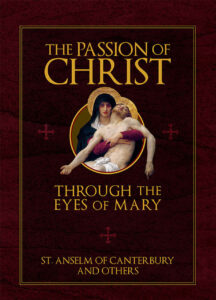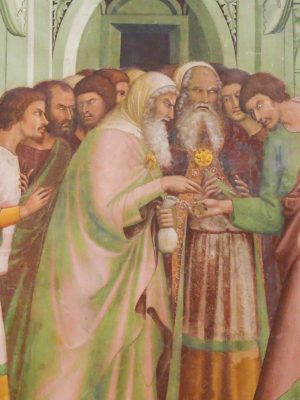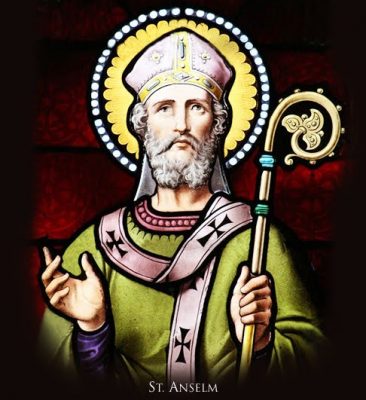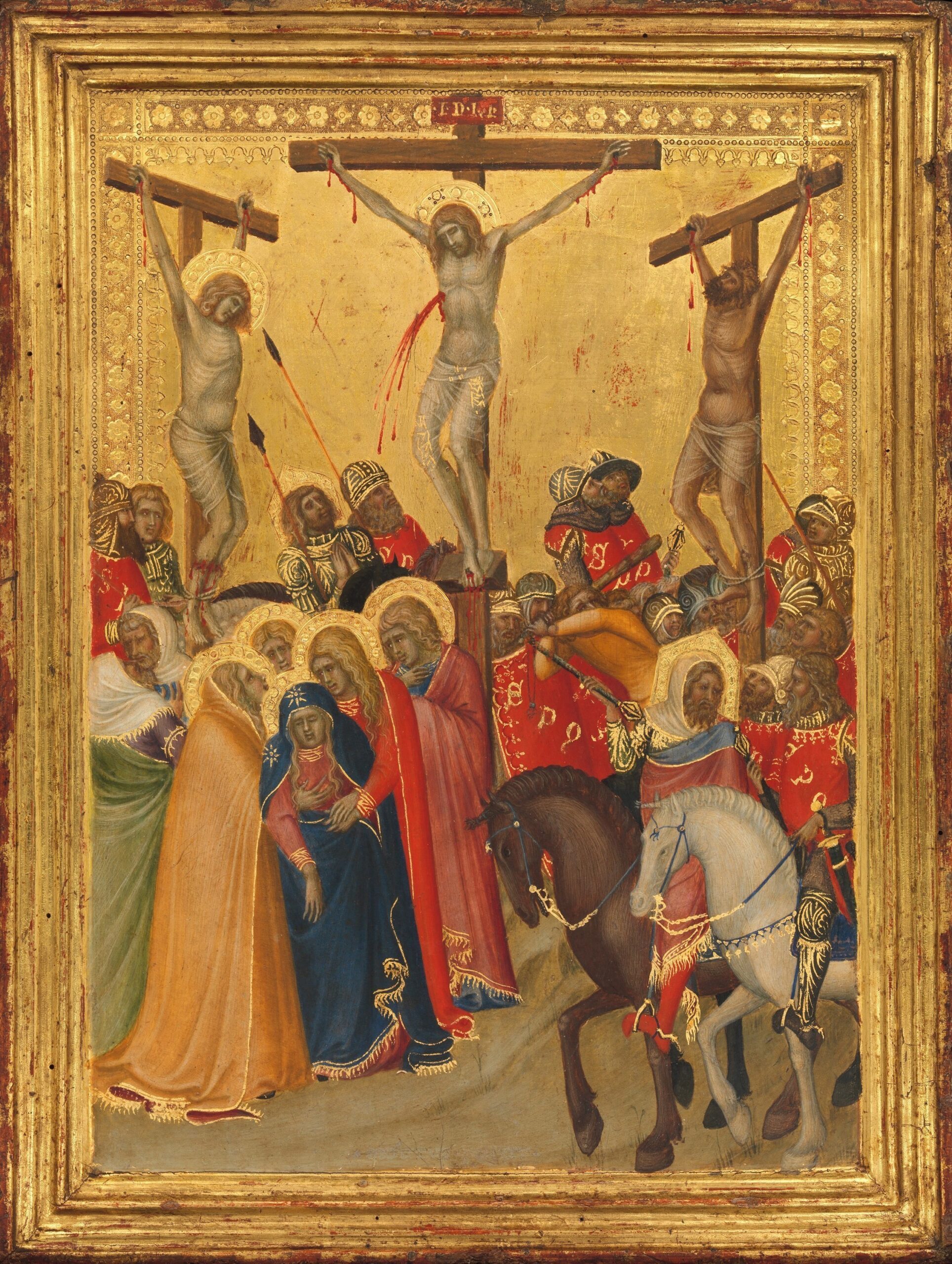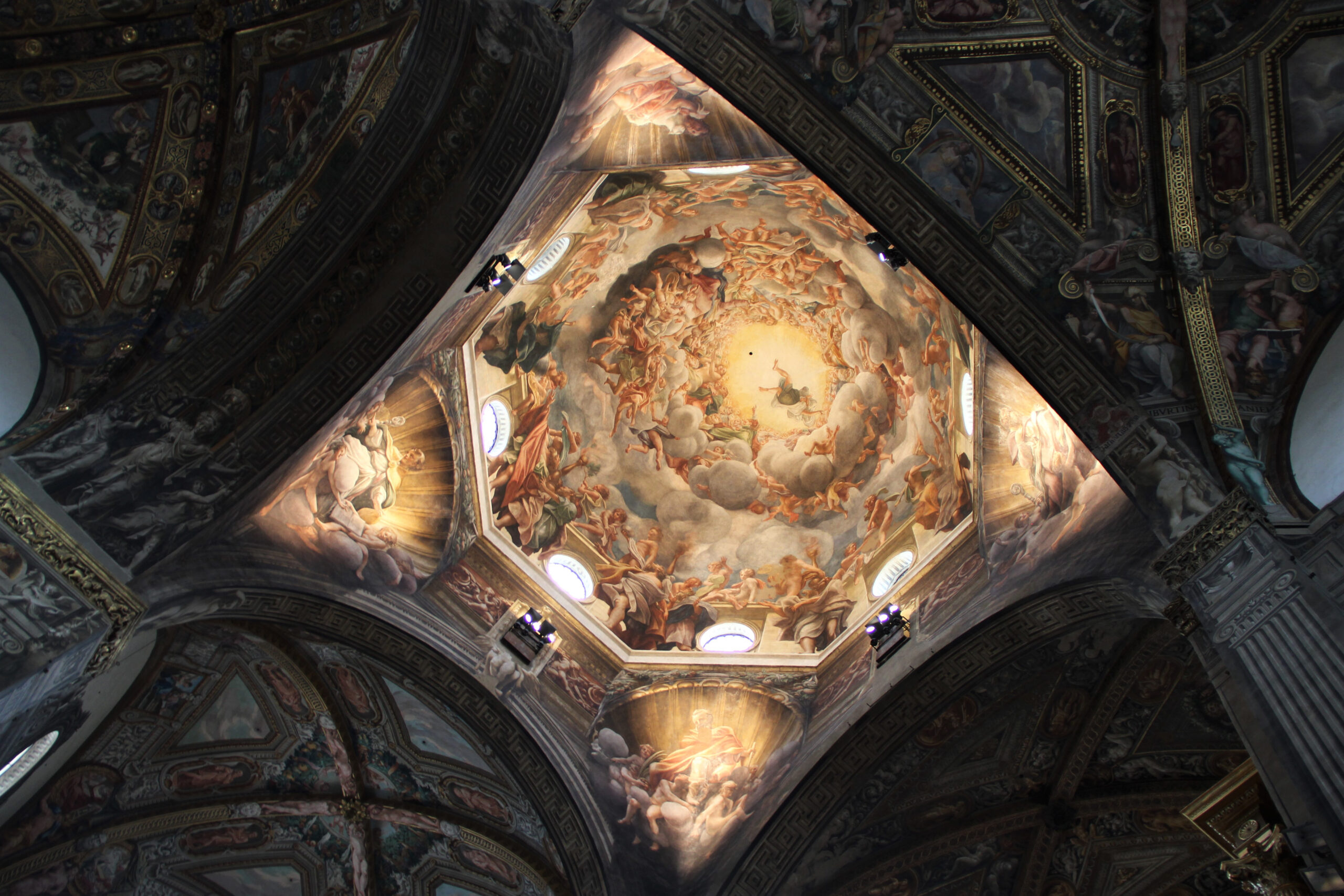Anselm: Tell me, most beloved Lady, how did the events of the passion of your Son first begin?
Mary: When my Son and His disciples had arisen from the table at His last supper, the perfidious traitor Judas Iscariot went forth alone to see the high priests of the temple. He received from them the sum of thirty denarii of silver and, in exchange, promised to betray Christ into their hands.
Anselm: What type of denarii was it which he received from the priests?
Mary: They were the denarii of the Ishmaelites. In fact, they were the very same coins which the brothers of Joseph had received from the Ishmaelites when they sold him into slavery some two thousand years previously. Through succession and inheritance, these same thirty silver denarii had passed into the hands of the temple treasury. Each of these silver coins was ten times the size and weight of a usual denarius. Judas was so avaricious and filled with such a greed for earthly wealth that when he saw these coins, he immediately undertook to betray my Son to the temple priests. Indeed, Christ had foreseen this act of betrayal and had often spoken of it, but even this did not serve to deter Judas from his wicked purpose.
Anselm: My Lady, were you present at that last supper with your Son and His disciples?
Mary: No, I was not present when my Son partook of that last supper at which He washed the feet of His disciples and spoke to them loving words of encouragement. This was the great and holy supper in which He gave to them His own Body and Blood through the sacramental signs of bread and wine. After this sacred meal, when Judas went to see the high priests to betray Jesus, Christ went on with His disciples to Mount Sion, passing through the gate by the Pool of Siloam. My Son then entered a garden. And while the disciples slept, He went forth to the foot of the Mount of Olives so that He was about a stone’s throw from the sleeping disciples. And there, He poured out fervent prayers to His heavenly Father, saying:
“O Lord, hear my cry! For thou art kind and full of compassion. According to the abundance of thy mercy, look upon me now. Turn not thy face from thy Child! I am gravely afflicted; give ear to my supplications. Look upon my soul, and free it from the tribulation and peril which surrounds it. Rescue me, I implore thee, from the snares of my enemies; Save me from the clutches of all those who seek to destroy my life!”
Anselm: Most glorious Virgin, why was it that your Son—who was both Son of God and true God Himself—needed to pray at that time?
Mary: Although He knew Himself to be the Son of God, still He needed to pray for three reasons: Firstly, He was of a delicate and refined constitution, as the child of an inviolate virgin, and born of royal blood. For it is a fact that those who are more noble suffer more deeply when they are harmed than those who are of coarse and common stock. Secondly, He experienced such an extremity of anguish that His sweat ran forth like great drops of blood. [Thirdly,] because, being God Himself, He knew perfectly in advance everything which He was to suffer and undergo. This included the contemptuous showering of Him with spittle, the blasphemies and insults of the soldiers and the crowds, the bloody scourging, the cruel crucifixion, and all the innumerable other torments He was to endure.
This article is taken from a chapter in The Passion of Christ Through the Eyes of Mary, which is available from TAN Books.
